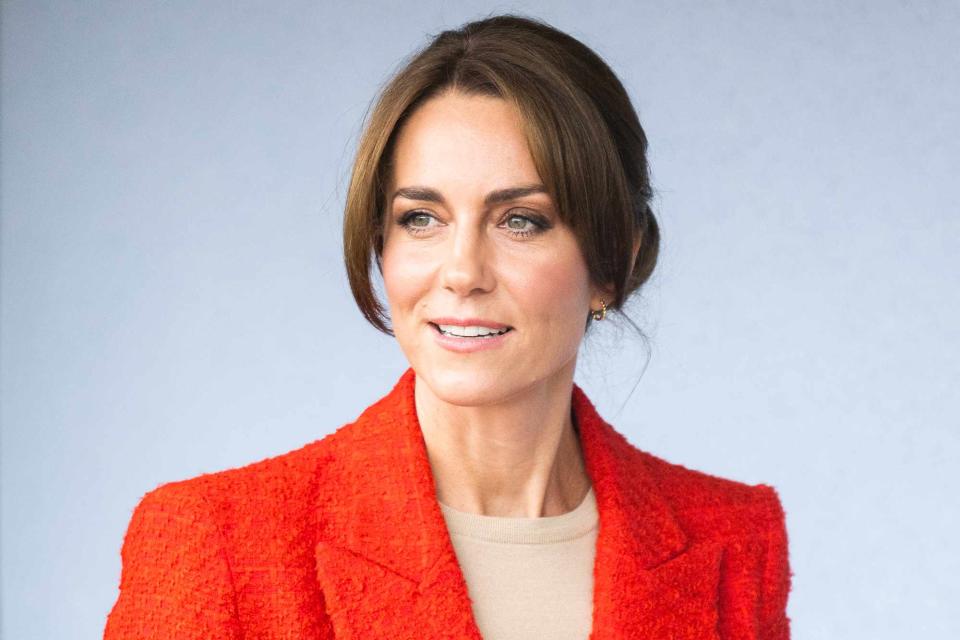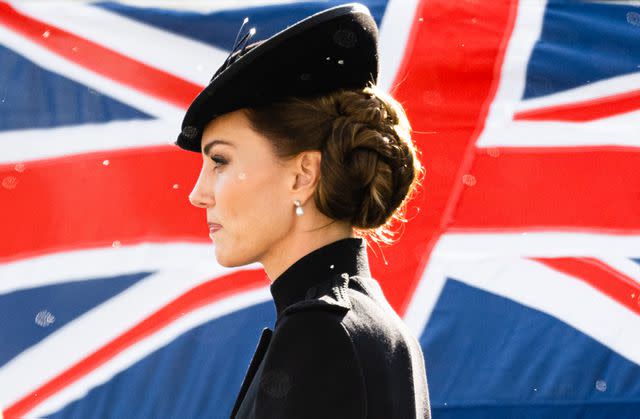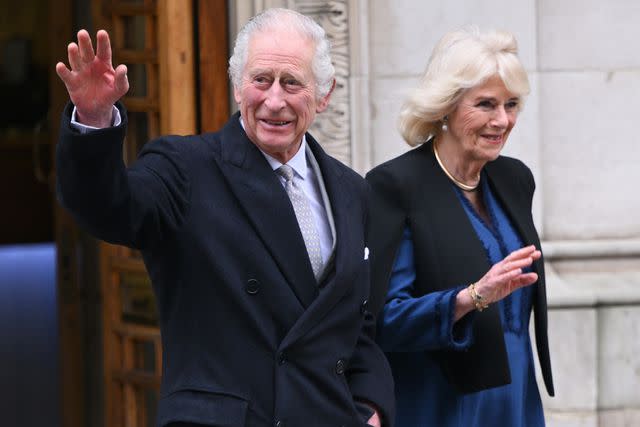Kate Middleton Online Conspiracy Theories Linked to Russian-Based Disinformation Campaign
Sander van der Linden of the University of Cambridge summed up the recent speculation around Princess Kate as "a perfect cocktail" for conspiracy theories

Samir Hussein/WireImage
Kate Middleton joins a Portage Session for her Shaping Us campaign on September 27, 2023The demand for greater information on Kate Middleton before she disclosed her cancer diagnosis hit a high online perpetuated in part by a Russian-based disinformation campaign, according to new reports.
Martin Innes, the director of the Security, Crime and Intelligence Innovation Institute at Cardiff University in Wales, told NBC News and The New York Times that he and his team identified 45 accounts posting about Princess Kate, 42, in a way that hinted the messages were affiliated with Doppelgänger, a Russian disinformation operation.
Innes said the network did not start the speculation but took advantage of the traffic to disperse pro-Russia content and internet dissonance.
"It’s not as though these Russia-linked accounts were driving the story; they were jumping on it," he told NBC News. "It was already being framed in conspiracy terms, so foreign actors don’t need to set that frame — that’s already there to exploit."

Samir Hussein/WireImage
Kate Middleton visits the Army Training Centre Pirbright on September 16, 2022"It’s about destabilization. It’s about undermining trust in institutions: government, monarchy, media — everything," Innes added. "These kinds of stories are ideal vehicles by which they do that."
Chatter around Princess Kate’s health and whereabouts amid her private recovery following abdominal surgery in January hit a new pitch when Prince William unexpectedly missed a memorial for his late godfather, King Constantine of Greece, on Feb. 27. It’s now understood that Prince William, 41, dropped out of the ceremony due to his wife’s diagnosis.
Innes said they suspected Doppelgänger was at play due to the accounts’ usernames, how they seemed to be created in batches and circulated the same wording. The expert explained that the Russian-linked accounts would sometimes reply to existing posts about Princess Kate on X with pro-Russia, anti-Ukraine content.
Sander van der Linden, a professor of psychology at the University of Cambridge who studies the influence of misinformation, summed up the speculation around Princess Kate as "a perfect cocktail in terms of the things that you need for conspiracy theories to thrive." Van der Linden pointed to how the Princess of Wales’ Mother’s Day photo sparked a PR crisis further fueling the fire.
Innes told the New York Times that Doppelgänger likely mobilized online for commercial and political gains, as the Princess of Wales’ absence from the public eye created a vacuum for rumors that became increasingly frenzied as the days went by. The outlet reported that "amplifying those posts through their accounts would enable them to boost their own traffic statistics and follower counts," further layered by the fact that King Charles was also reportedly targeted by Russian media outlets in a similar way.
On March 18, a few days before Princess Kate shared the shocking news that she had cancer, the online conversation around the King, 75, heightened when some Russian outlets published a story claiming that the British monarch had died. The King postponed public-facing duties while receiving cancer treatment, a diagnosis announced by Buckingham Palace in February.
That Sunday, screenshots of a doctored death announcement from the palace made the rounds online and on TikTok, The Mirror reported.
The British Embassy in Ukraine swiftly refuted the claims made in the Russian reports on the same day, issuing a statement on X declaring, "News about the death of King Charles III is fake."

Karwai Tang/WireImage
King Charles and Queen Camilla leave The London Clinic on January 29, 2024Can't get enough of PEOPLE's Royals coverage? Sign up for our free Royals newsletter to get the latest updates on Kate Middleton, Meghan Markle and more!
Buckingham Palace also reportedly dismissed the rumors in a statement to the state-run Russian news agency TASS, affirming, "We are happy to confirm that The King is continuing with official and private business," according to the New York Post.
This week, both the New York Times and NBC cited a report from The Telegraph that British government officials worried China and Iran were also driving disinformation around Princess Kate in an attempt to destabilize the nation.
If the Mother’s Day photo fiasco is a microcosm of the modern demand for information around the royal family, a former longtime palace aide tells PEOPLE it’s the "curse" of royal life in modern times.
"There was no malintent. But it unleashed up a pent-up feeling that people wanted information — unfortunately, that’s the curse of being a modern royal," a former longtime palace aide exclusively tells PEOPLE. "It was a complex reaction."
For more People news, make sure to sign up for our newsletter!
Read the original article on People.


